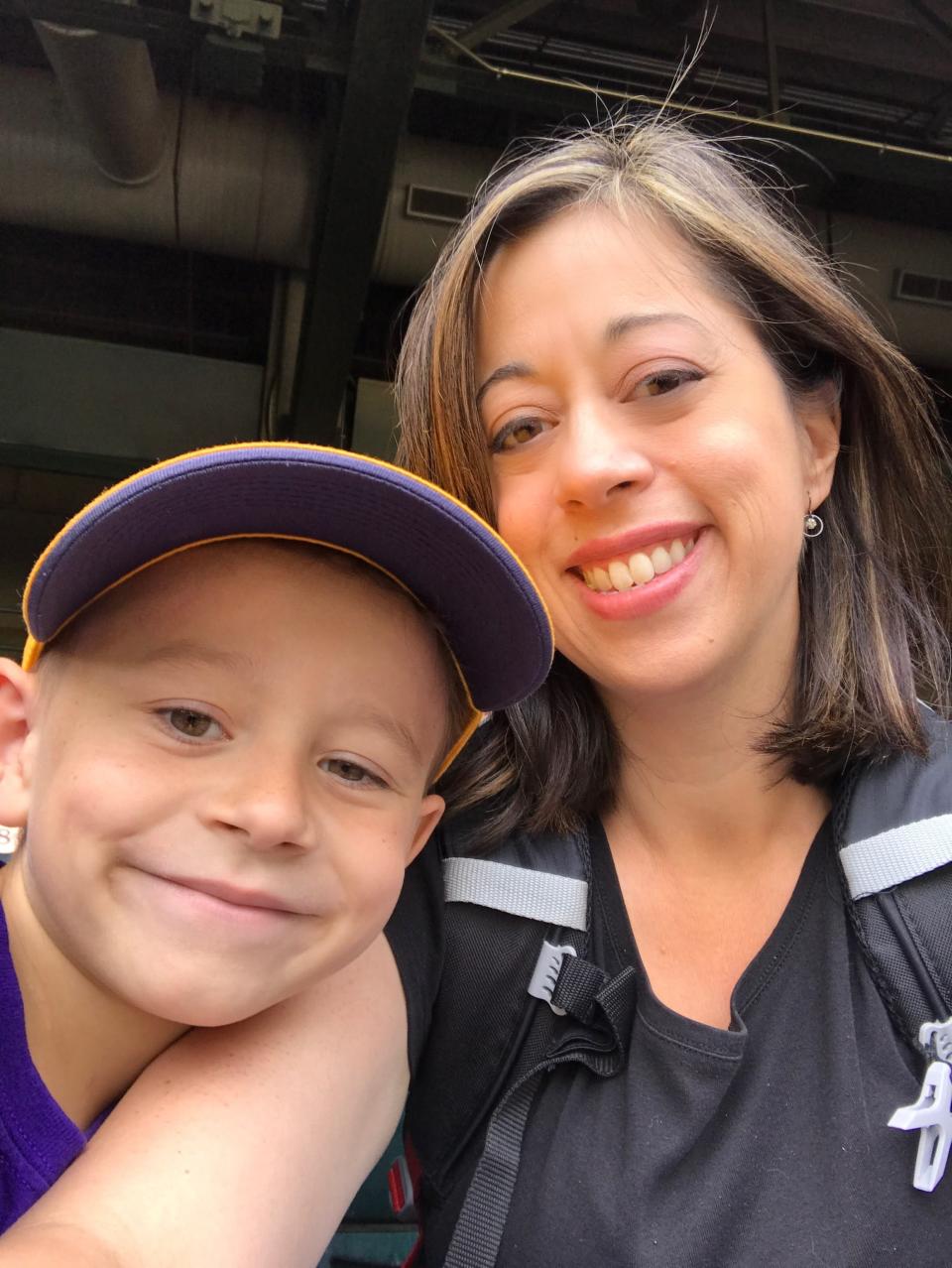A heart transplant saved my son's life. Now, donor network that saved him is under attack.
My youngest son was dying.
He was born with a complex heart defect, and instead of celebrating my family’s newest gift of life, I watched his medical team struggle to keep him alive.
It took a complex matrix of individuals beyond the medical team to make my son’s transplant possible.
It included people across the country who were able to locate, match and transport a new heart to save my son.
They are all part of the nationwide Organ Procurement and Transplantation Network (OPTN), which is managed by United Network for Organ Sharing, a nonprofit.
System ensures equal access to organs
For decades, those medical experts have provided lifesaving services to pediatric transplant families like ours – and in doing so, redefined the gift of life.

I’ve spent years since my son’s transplant as an advocate and as a patient and donor representative.
I have seen firsthand how our collective system helps to ensure that all patients on the waiting list have equitable access to organs, regardless of race, economic or social status.
That system recently came under attack, however, with false claims that it is falling apart and needs to be replaced and run by new entities.
If that was the case, then why does the U.S. continue to break global organ donation and transplant records every year?
In 2022, the country performed 42,888 organ transplants, more than any other year. Of those, 1,285 were done in Arizona, a 5.85% increase over 2021.
UNOS calls for increase in organ donors: Bonnie Raitt's song of the year spotlights organ donation. Too often, we waste that gift.
Another view: Dozens of Americans die daily waiting for an organ transplant. Why do we let this happen?
Sensationalized claims spur calls for change
Leading the attacks against our transplant system are special interest groups, political think tanks and companies that use media opportunities, government lobbying and self-produced research to make sensationalized claims of poor performance.
The government’s proposed solution to the claims is to take on multiple new contractors to manage the OPTN, which could ultimately encourage a for-profit model.
That would greatly disadvantage thousands of recipients and their families who are currently waiting for new organs.
But the people who will be affected most are those who may need transplants years or even decades from now: They will suffer the full repercussions of decisions made today.
Undoing my family legacy: North Carolina's abortion ban is an extreme extension of my grandfather's legacy
Examining Trump's sexual abuse case: In E. Jean Carroll lawsuit against Trump, we're reminded there's no right way to be raped
When Congress passed the National Organ Transplant Act in 1984, it included a requirement that any organization contracted to manage the OPTN must be a nonprofit with experience in organ donation and transplant.
This ensured that patient wellbeing would always remain top priority and that passionate medical experts – not executives – would chart the system’s future.
That has been our safeguard against for-profit interests. Until now.
For-profit interests could wreck US transplant system
There is a new bill in the U.S. House of Representatives, HR 2544, which would strike that requirement, thereby opening the door to companies that by their very structures are beholden to their shareholders over all else.
We have already seen the impact of for-profit companies in the medical industry that have replaced their altruistic counterparts.
Opinion alerts: Get columns from your favorite columnists + expert analysis on top issues, delivered straight to your device through the USA TODAY app. Don't have the app? Download it for free from your app store.
For example, the cost of the EpiPen has soared 500% within the last 10 years.
But perhaps the most egregious for-profit example is insulin: Its inventors sold their patent for merely $1 to the University of Toronto specifically to ensure that this precious drug could remain cheap and accessible to all.
Despite the intended altruism, insulin now costs hundreds of dollars, forcing people to make difficult financial decisions or, worse, ration medication and risk lives.
Unfortunately, this has become a common dilemma for those who need life-saving treatments.
Preserve our nonprofit transplant system for the greater good
It is vital that we continue to support our current nonprofit transplant system.
Since 1984, they have done the impossible with very little means, leading a greater community made up of transplant hospitals, medical teams, complex procurement and transportation systems and patient groups to bring the gift of life to many.
Our nation’s transplant system depends on us preserving the altruism that built it.
I believe that with continued support from us, the families of those whose lives were saved, the United Network for Organ Sharing and its vast network of volunteer patients, analysts and clinicians can continue to shatter records that save the lives of so many, including my son.
We in the transplant community have had the joy of watching thousands of children grow into adulthood thanks to the miracle of organ transplants.
This is our opportunity to keep down the medical costs involved – for them and for all the children yet to come.
Melissa McQueen, whose son received a heart transplant in 2009, is an organ donation advocate and co-founder of Transplant Families, a community organization based in Arizona that provides support for pediatric transplant families. Reach her at melissa@transplantfamilies.org.
You can read diverse opinions from our Board of Contributors and other writers on the Opinion front page, on Twitter @usatodayopinion and in our daily Opinion newsletter. To respond to a column, submit a comment to letters@usatoday.com.
This article originally appeared on Arizona Republic: Organ donors saved my son's life. But US transplant network is at risk

